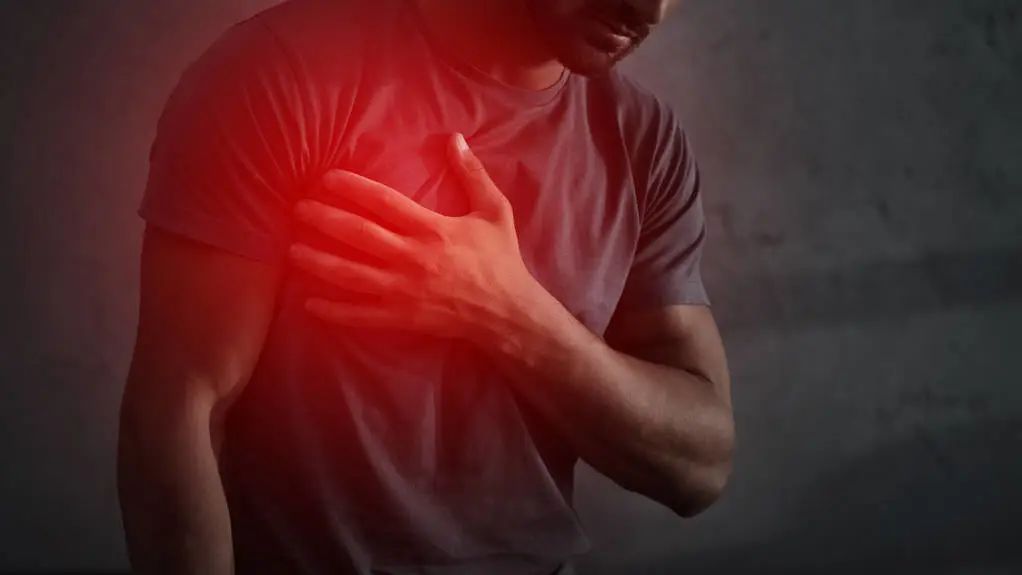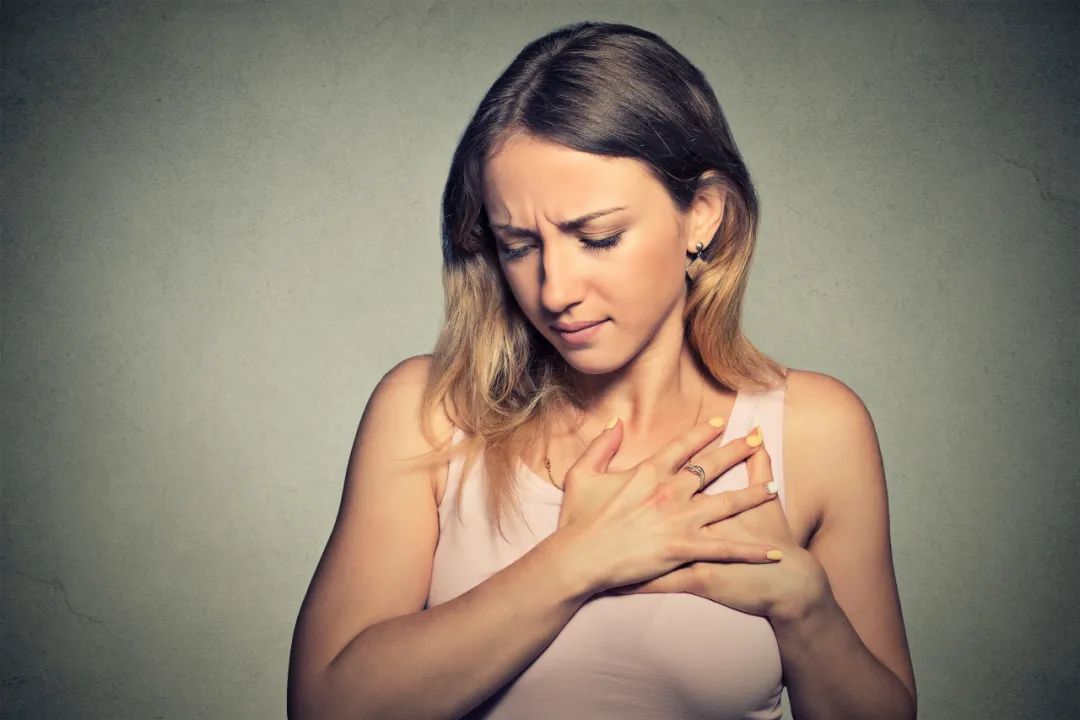People who die suddenly have these rules.
You may think that you are in good health and there will be no major problems, but you know what? Some people suddenly fell down and never woke up because of temporary excitement or fatigue. This is sudden death, an unpredictable fatal event.

There seems to be nothing wrong. Why did you die suddenly?
Is there any rule of sudden death? Is there any warning? Can we avoid it? To answer these questions, let’s take a look at a recent study.
This study was published in the journal chinese journal of critical care medicine in April, 2020, entitled "Analysis of Epidemiological Characteristics of 5,516 Cases of Autopsy Sudden Death in China". The researchers dissected the bodies of 5516 cases of sudden death and found the following important findings:
1. Emotional excitement and fatigue are the most common causes.
The study found that among the causes of sudden death, emotional excitement accounted for 26%, fatigue accounted for 25%, and blood volume change accounted for 8.95%. Other inducements include drinking, satiety and minor injuries.
2. Heart problem is the main reason.
It was found that among the causes of sudden death, cardiogenic sudden death accounted for 57.76%, pulmonary sudden death accounted for 21.63%, and brain-derived sudden death accounted for 9.21%. Sudden cardiac death is mainly caused by coronary heart disease, myocardial infarction and arrhythmia.
3. There are often some uncomfortable signals before sudden death.
It is found that people with symptoms and signs in sudden death are most often manifested as sudden attack (20.10%), rest and sleep (16.71%), followed by vomiting (7.49%), dyspnea, chest tightness and sweating, dizziness, chest pain, abdominal pain, convulsion, headache, palpitation, cough and disturbance of consciousness.
People with chronic diseases are more prone to sudden death.
It was found that hypertension (37.95%), heart disease (30.02%) and diabetes (23.79%) were the most common among those with past history. Followed by dysplasia, hyperlipidemia, tumor, infection, hyperthyroidism and so on.
5.30 ~ 63 years old is the high incidence age of sudden cardiac death.
People in this age group are at an important stage of their career and family, with high work pressure, fast pace of life, irregular diet, and addiction to cigarettes and good wine, which may easily lead to "three highs" and coronary heart disease.
How to avoid sudden death? Please do the following three points.
From these laws, we can get some enlightenment:
Middle-aged people should pay attention to controlling their emotions!

Do you often get angry and quarrel with others because of some small things? Are you sometimes so excited that you get carried away and even laugh until you cry? You may think these are normal emotional expressions, but you know what? These mood swings may bring fatal danger to your heart!
A media person once witnessed such a tragedy. Her father-in-law was taken to the hospital because of a sudden acute myocardial infarction, and survived after the rescue. However, she found that in her father-in-law’s ward, the other six patients have one thing in common: they are all quick-tempered and short-tempered, and they are emotional, angry and angry when things happen.
She learned a lesson from it: these people are all out of control because of their emotions, which leads to heart problems!
Why is emotional excitement harmful to the heart?
It turns out that when we are angry or excited, the body will secrete a lot of hormones such as adrenaline and cortisol, which will double the blood flow of the heart, strengthen the contractility of the heart and accelerate the heartbeat. At the same time, blood vessels will contract, blood pressure will increase and blood viscosity will increase. In this way, the heart will bear a greater burden, prone to arrhythmia, myocardial ischemia, chest tightness, palpitation and other symptoms. If the duration is too long or the frequency is too high, it may induce serious cardiovascular events such as angina pectoris or myocardial infarction.
Therefore, middle-aged people should learn to adjust their emotions and maintain peace. Don’t vent or suppress things that don’t go your way, but find a suitable way to release the pressure. For example, you can chat with friends, listen to music, do sports and read books. This can not only relax the body and mind, but also enhance the physical fitness, which is beneficial to the heart.
Middle-aged people should rest moderately and avoid overwork!
Are you often so busy with work and family that you even ignore your physical discomfort? You may think it’s your responsibility and responsibility, but you know what? This lifestyle may make your heart stop beating at any time!
Research shows that many sudden deaths have experienced high pressure, long-term and high-intensity working conditions. This kind of work will make your sympathetic nerves overexcited, leading to heart overload, arrhythmia and myocardial ischemia. If the duration is too long or the frequency is too high, it may lead to fatal cardiovascular events such as arrhythmia or myocardial infarction. Some people die suddenly because of working overtime overnight, mood swings and nervous stress, which leads to neurological dysfunction, coronary artery spasm and sudden stop of blood supply to the heart.
Therefore, middle-aged people should arrange their work and rest reasonably, don’t be overworked, and don’t stay up late to hurt themselves. It is necessary to do some aerobic exercise properly to relax and enhance physical fitness. It is necessary to have a regular physical examination to find and treat chronic diseases in time. Keep good living habits and stay away from alcohol, tobacco and greasy food. Only in this way can you protect your heart from the threat of sudden death.
Middle-aged people should pay attention to body signals and seek medical treatment in time!
You may not know that before sudden death, your body actually gave you many warnings. If you can find and deal with it in time, it is possible to avoid the tragedy.

So, what are the signals before sudden death? According to research, the most common symptom before sudden death is chest discomfort, which mainly has the following three manifestations:
Angina pectoris. This is a feeling of pain or oppression in the chest or precordial area, which usually lasts less than 15 minutes and is often accompanied by dysphagia or chest tightness. This is caused by heart ischemia and hypoxia.
Flustered. This is a feeling of rapid or irregular heartbeat, which usually lasts less than 10 minutes and is often accompanied by discomfort such as chest tightness, fatigue and dizziness. This is due to cardiac electrophysiological dysfunction.
Low blood pressure. This is a state in which blood pressure drops below the normal value, which generally lasts less than 5 minutes, and is often accompanied by symptoms such as cold sweat and dyspnea. This is because the pumping function of the heart is weakened.
These signals mostly occur after physical activity, emotional excitement or satiety. If they can be relieved after rest, it means a mild heart problem. However, if it still doesn’t improve after rest, or there are frequent or persistent signals, it means that it is a serious heart problem and needs immediate medical attention.
In addition to these signals, there are some less obvious signals, such as left arm pain, sore throat or toothache. These signals may be nerve reflexes caused by heart problems, which also need attention.
In short, middle-aged people should pay special attention to their physical changes. If there is any chest discomfort, dull pain or fatigue, they should go to the hospital for examination in time and don’t take it lightly. Only early detection and treatment of heart problems can effectively prevent and reduce the risk of sudden death.
Paper materials: Analysis of Epidemiological Characteristics of 5516 Cases of Autopsy Sudden Death in China, chinese journal of critical care medicine Journal in April 2020.
Original title: "Doctors dissected more than 5,000 cases of sudden death and found that people who died suddenly had these rules! 》
Read the original text